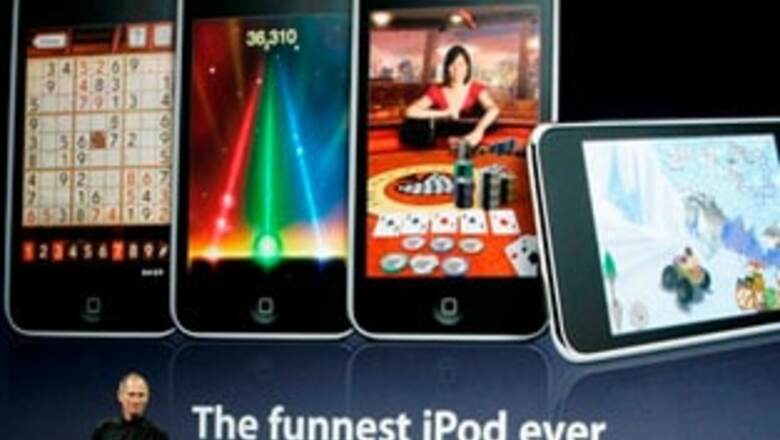
views
New York: When Apple introduced the iPhone, it shook up the cell phone business but it also changed the way people play video games.
About a quarter of the 100,000 applications that you can download to the iPhone are games, ranging from the simple "Doodle Jump" to a version of "Grand Theft Auto."
Now, with the looming launch of a tablet-style computer — already nicknamed the "iPhone on steroids," with a bigger screen that might have a place in the living room — Apple could pose an even tougher challenge to established players in the video game business.
That assumes, however, that potential buyers aren't scared off by a price that might be more than the cost of a Wii, a PlayStation 3 and an Xbox 360 combined. Apple isn't commenting on its unveiling Wednesday.
Apple's iPhone and the similar iPod Touch brought a new look to games because they have an accelerometer inside that lets people control the action by turning or tilting the device.
With a touch screen and the computing horsepower for high-quality graphics, the iPhone lends itself to pared-down versions of console games like "Assassin's Creed" and "The Sims 3."
Its size, meanwhile, makes it easy to consume addictive puzzles in 5-minute increments while waiting for the dentist or riding the subway.
Now the iPhone, which costs $99, $199 or $299 plus a monthly service plan, rivals gadgets such as the Nintendo DS ($130-$170) or PlayStation Portable ($170-$250), known as the PSP, which were created solely for playing games on the go.
It's unclear whether Apple has taken substantial market share away, but the iPhone likely introduced people to mobile games who wouldn't have played otherwise.
"We've seen the iPhone and iPod Touch as kind of a starter kit for video games," says John Koller, director of hardware marketing at Sony Computer Entertainment America. "When those customers are ready to graduate into a deeper experience, the PSP is there for them."
Soon a tablet may be there for them, too. A touch-screen gadget that is bigger than an iPhone could provide a larger playing field for gamers and give game developers a new way to push the limits of their creativity.
"Any game where there are multiple moving objects on the screen, or a map to explore, will especially be a better experience," says Ian Lynch Smith, the president of Freeverse, a developer of iPhone and Mac games. "Also the more high end, cinematic games will benefit directly from the more immersive screen size."
Apple profits from games because it takes a cut of apps that are sold on the iPhone, where games generally cost between 99 cents and $9.99.
Last year the company hired Graeme Devine, a developer with 25 years of experience and games such as "Halo Wars" and "Quake 3" under his belt, to work on "iPhone gaming technologies."
Of course, the tablet is likely to be about much more than gaming, but the same increasingly can be said about video game consoles. Makers of home video game systems are trying to sell their products as all-in-one entertainment devices.
Microsoft Corp.'s Xbox 360 (starting at $200) and Sony Corp.'s PlayStation 3 (starting at $300) both offer streaming movies from Netflix, for example, and Nintendo Co.'s Wii ($200) is set to start in the spring. Sony markets the PS3 as the "most fully loaded console," one that "only does everything," including Blu-ray movies, Facebook updates or Web browsing.
Given that Apple will have to persuade people they need another gadget in their lives, the company is also likely to bill the tablet as a do-everything device, a way for people to manage music, video, games, communication and Web browsing. And while it will be portable in a way game consoles are not, "it makes sense that it would be connected to the TV eventually," says Peter Relan, chairman of Aurora Feint, the developer of a large social game network for the iPhone.
Smith thinks hard-core gamers will still own a console and use it as the primary gaming platform at home "for some years to come."
"But I can see the tablet taking almost all of the casual to moderate gamer market," he says.
The challenge for console makers will be to respond with innovation. One avenue could be in increasingly sophisticated motion controls, such as Microsoft's upcoming "Project Natal," which lets people manipulate on-screen avatars using their bodies. Natal is set to debut on the Xbox this holiday season.
"Games have become the killer pursuit on all new devices," says Mark Pincus, founder and CEO of Zynga, the company behind popular Facebook games such as "FarmVille" and "Mafia Wars." ''They are the reason people buy major new hardware from the Xbox to the iPhone."




















Comments
0 comment